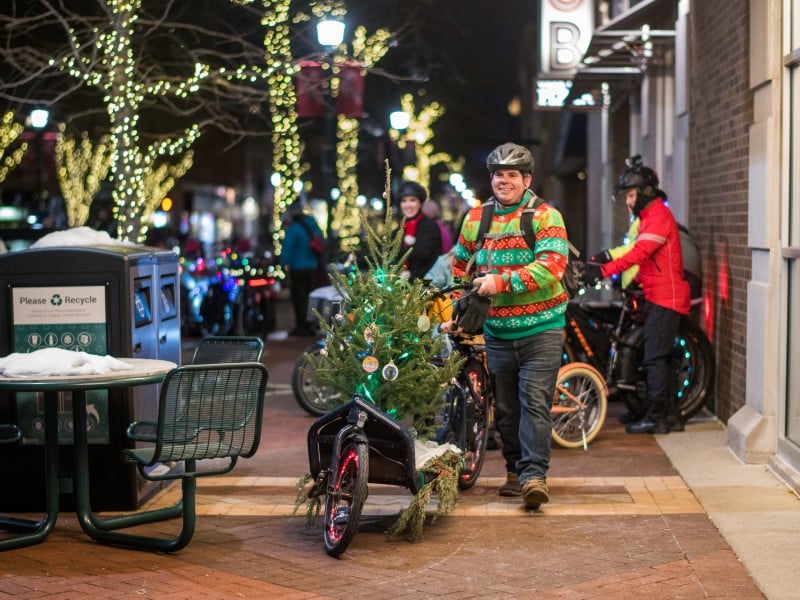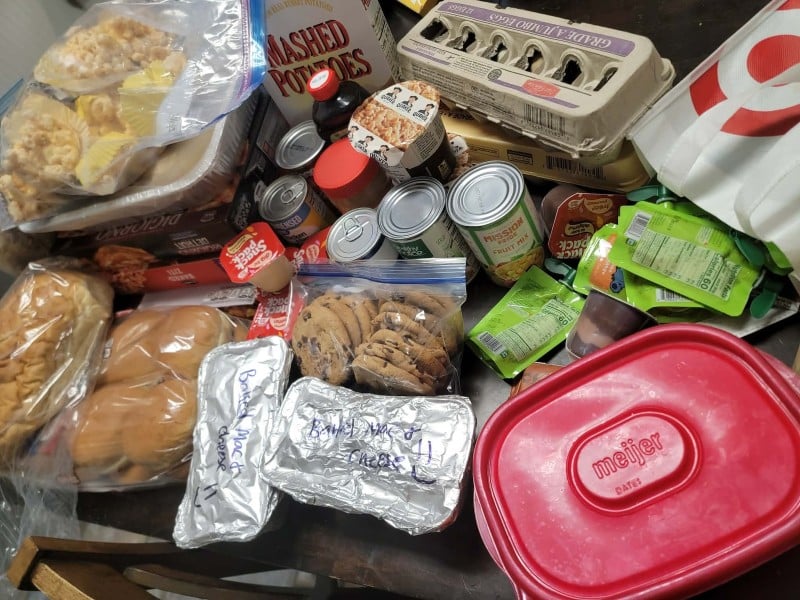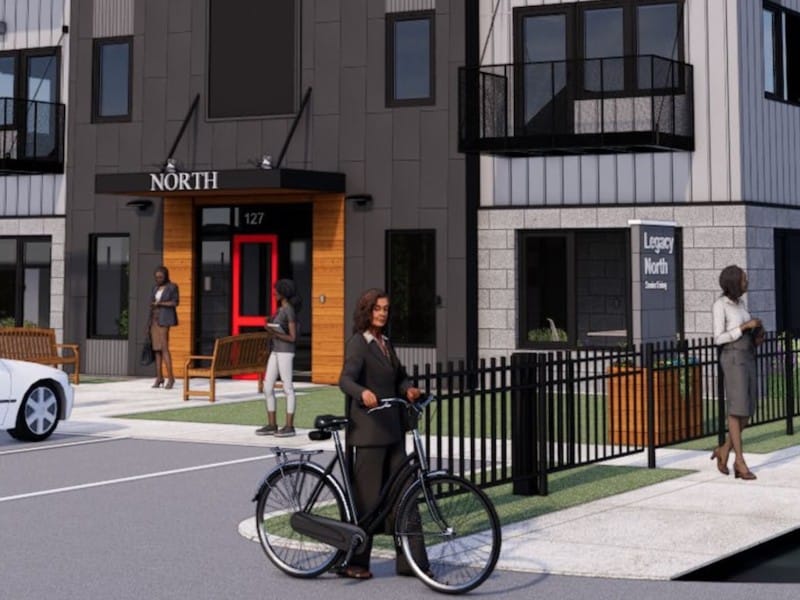Temporary housing PODs have been built. Kalamazoo agency seeks a suitable site for them.
“We’ve learned that we are held to timelines beyond our control — pandemics, supply chains, logistics, site availability, funding,” says Michelle Davis, Executive Director of Housing Resources Inc. as they work to establish a community in Kalamazoo of temporary, longer-lasting housing “pods” for those without houses.
A Way Home — Housing Solutions: This story is part of Southwest Michigan Second Wave’s series on solutions to homelessness and ways to increase affordable housing. It is made possible by a coalition of funders including the City of Kalamazoo, Kalamazoo County, Kalamazoo County Land Bank, and LISC.
Safe and more sustainable housing for Kalamazoo’s homeless population remains the focus of a local organization that works to provide solutions for people in housing crisis.
But it turns out the timeline for developing a community of temporary, longer-lasting housing “pods” for those without houses is to a large extent dictated by others.
“We’ve learned that we are held to timelines beyond our control — pandemics, supply chains, logistics, site availability, funding,” says Michelle Davis, Executive Director of Housing Resources Inc. To accommodate that, she says, “We must adapt and pivot. But most of all keep moving forward.”
The nonprofit organization Housing Resources Inc. announced plans in October to establish the Kzoo POD Community. HRI helps people find affordable housing, helps individuals apply for financial aid, and provides crisis intervention involving housing. It also helps renters avoid eviction and helps landlords avoid the costs associated with that. And it is the administrator of the COVID Emergency Rental Assistance program in Kalamazoo, which provides funding to help renters who are facing eviction as a result of pandemic-related hardships. The move to purchase POD housing grew out of a collaboration of local service organizations that started to help address problems arising from the COVID-19 pandemic and continued to meet to work on ongoing housing concerns.
As used in Kalamazoo, “POD” stands for “Place of Dignity” — a well-maintained location on which to erect at least 50 warm, weather-resistant, and small enclosures (8’ by 8’ by 8’ or 16′ by 8′ by 8′) to house people who have been living outdoors without houses in Kalamazoo.
The project intends to use modular housing units designed in Oregon and called ModPods. HRI’s hope was to have a site leased and the community started in time to help get people through the cold winter months. But a delivery date for the ModPods, which are produced by LIT Solutions of Portland, Ore., has been delayed.
Davis says LIT Solutions has reported that the 50 pods for which HRI has agreed to pay about $1 million have been completed. “Our current activities are to coordinate the delivery and a place for local storage of the pods,” Davis says.
Made with powder-coated aluminum framing, insulated walls, and an aluminum composite exterior, they are designed to be waterproof, weather-resistant, and easily assembled transitional housing. Their construction uses no wood, making them less susceptible to fire. Equipped as HRI has requested, the 34 small pods will cost about $14,900 each. The 16 larger units will cost about $29,400 each.
Although Davis says she is not able to name potential new sites for the community, she says, HRI has continued the process of identifying a potential site for the project “and will pivot to site planning and development when appropriate.”
The POD community has been seen as a way to establish a more permanent location for at least some of the more than 100 people who slept outdoors last year in tents and makeshift shelters in two large but unsafe encampments near downtown Kalamazoo. The vacant former Michigan Department of Human Services property at 322 E. Stockbridge Ave. was being considered as a location for the POD community.
But HRI decided against using the Stockbridge Avenue site after the move was criticized by some members of the surrounding Edison Neighborhood who said the property was subject to flooding and that they worried about having more transient people frequenting the area.
Advocates say people are houseless for a variety of reasons including the loss of work, unforeseen financial crisis, unresolved problems with alcohol or substance abuse, and mental health issues. A significant number of those living in encampments that were disbanded by Kalamazoo Public Safety are individuals who shun some well-established social service programs and emergency housing resources such as the Kalamazoo Gospel Mission.
The Kzoo POD Community will be focused on houseless people who have significant reasons for not wanting to shelter in the Kalamazoo Gospel Mission. They may include people with issues that make it difficult for them to be in large groups, and couples who want to stay together.
Of Kzoo POD Community, Davis says, “The strategy for the project remains the same — to provide temporary housing units with basic amenities and support services for Kalamazoo County’s unsheltered individuals.” But she says, for now, her organization will move forward to get the PODs to Kalamazoo as it tries to find a suitable site.
“There will be much to do and months of site development once that step happens,” Davis says of work that will occur after a site is chosen. “And there will be successes and challenges in that process. Whether that takes months, a year, or more, it is important to us that the POD project is a place for people to feel safe, supported, and sheltered from the streets.”

















